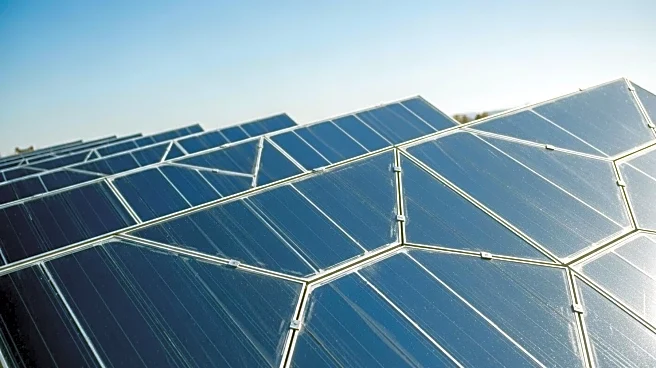What's Happening?
GCL Technology, a leading Chinese polysilicon producer, has announced plans to issue shares to raise approximately HK$3.505 billion ($450.66 million) for supply-side reforms. The funds will be used to establish a capital reserve aimed at restructuring polysilicon production capacity and addressing overcapacity issues in the industry. Additionally, GCL plans to invest in its silane gas business, which is experiencing growing demand due to advancements in solar cell technology. The company also intends to raise HK$1.887 billion for working capital and loan repayment.
Why It's Important?
GCL's capital-raising initiative is significant for the solar energy sector, as it aims to optimize polysilicon production and improve market stability. By addressing overcapacity, GCL seeks to enhance the quality and efficiency of its production processes, potentially leading to more competitive pricing and increased adoption of solar technology. This move could benefit the global solar industry by ensuring a steady supply of high-quality polysilicon, a critical component in solar cell manufacturing. The investment in silane gas also highlights the industry's shift towards more efficient solar technologies.
What's Next?
As GCL proceeds with its capital-raising efforts, the company may face challenges in securing the necessary financing due to the sector's high debt levels. However, successful implementation of the supply-side reforms could position GCL as a leader in the polysilicon market, potentially influencing global solar energy trends. The company's focus on innovation and efficiency may drive further advancements in solar technology, contributing to the broader transition towards renewable energy sources.
Beyond the Headlines
The restructuring of GCL's polysilicon production could have broader implications for the renewable energy sector, particularly in terms of sustainability and environmental impact. By optimizing production processes and reducing overcapacity, GCL may contribute to more sustainable manufacturing practices, aligning with global efforts to reduce carbon emissions and promote clean energy solutions.









